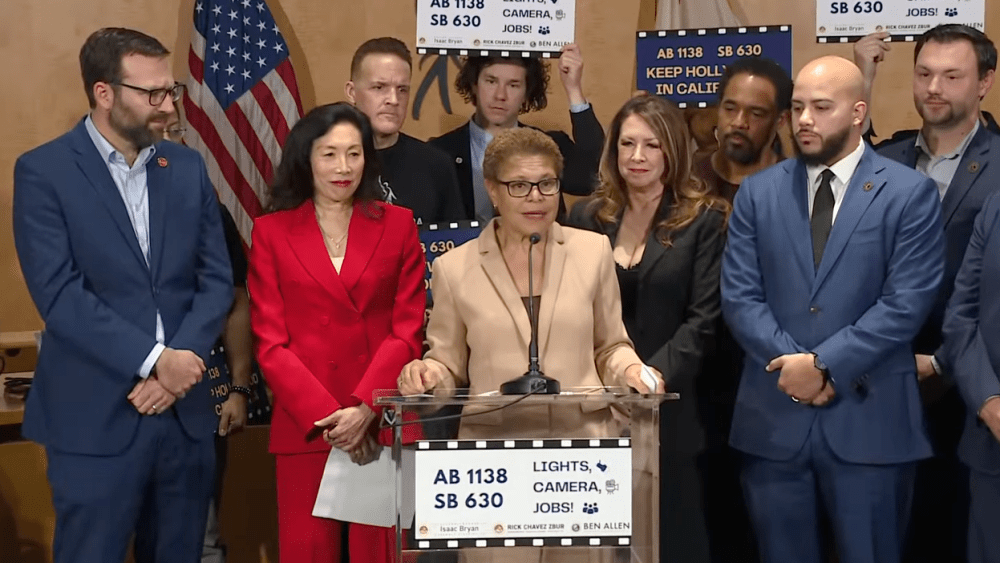California lawmakers plan to double the general metrics of the system by making the state's movie and television rewards extra profitability produced for specific people.
At a news conference Wednesday, lawmakers introduced two peer payments – AB 1138 and SB 630 to make the state's plans more aggressive in different states. Many of Georgia and New York’s famous audio systems have taken active action to sweeten their tax discounts to attract trade.
“We won't get that in the fight,” said Isaac Bryan, one of the many sponsors of the conference invoice.
Alex Aguilar, business director of the 724 worker in the business, said he needed to advise members and if they don't find jobs quickly, they would need to exchange careers.
“A lot of us have found ourselves giving up our property and leaving the state,” he said. “They don’t think there is a future for leisure trade now.”
Gov. Gavin Newsom said in October that he hopes to increase the system from $300 million a year to $750 million. At the time, he did not provide further adjustments to the system.
Bryan, Sen. Ben Allen and Congressman Rick Chavez Zber launched peer payments in the last week to “modernize” the system and “defend and communicate the work that brought California to different states.”
These payments are initiated in the placeholder type. ZBER said in the press conference that the main points are still working among trade stakeholders.
In the current genre, California’s plan gives most tax credit scores of 20%. This is significantly lower than most different locations. In Georgia and New York, the rebate is 30%. British Columbia introduced its last transfer to increase the credit score of provinces produced globally from 28% to 36%.
ZBER said payments will improve California's proportional kickbacks, although he didn't say much. He also said payments will expand various works that meet the criteria. The current show is prohibited from scripting TV reveals and has movies that do not include animation, reality reveals and entertainment reveals. TV reveals that the series also excludes TV for more than 40 minutes.
In a last month’s interview, Zbur said he was still working on a consensus between the studio and the union.
“We all know how frustrating the deal is,” he said. “My neighbors came to inform me that they were three to half of what they had done in the past few years.”
He is famous, leisure employees have also been hit hard by the 19-year-old pandemic and the current LA wildfires.
“We attribute it to them to get that across the road and get $750 million of permission and adjust it in the system to ensure it is aggressive in different states,” he said.
Payments are expected to be made by the Legislature. However, in the Press Convention, Ispur’s famous Sacramento has some opponents who believe that it has disappeared from different applications, given the Hollywood tax credit. He said in opposition to the argument that the system has proven a significant return on funds.
The California Manufacturing Coalition began lobbying in December, proposing additional benefits phrases made for specific people advocated phrases that qualify for additional benefits of state tax benefits.
Among the many gadgets on its agenda are allowances for “higher than roads” prices – salaries for managers, participants, producers and writers, which are currently excluded from the tax credit score. ZBER pointed out in the interview that this could be a “more durable factor”, he did not point out at a news conference on Wednesday.
Los Angeles Mayor Karen Bass established the state's film incentives as a conference spokesperson in 2009, notably when they were worried about Toronto's competitors.
“We did the tax credit, but we didn't do it in a way that could be sustained,” said the bass. “The different states hurried to build a tax credit scoring system that focuses more on trade.”

